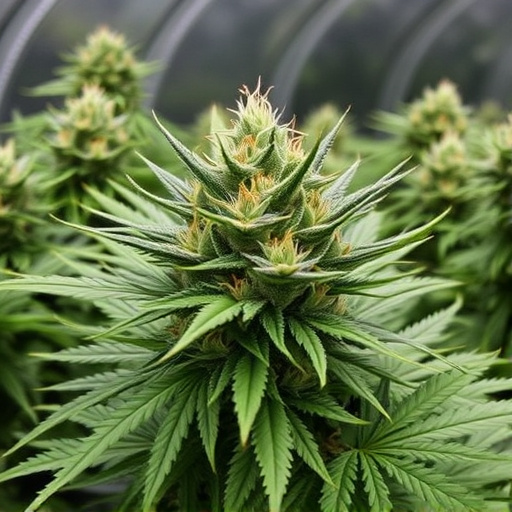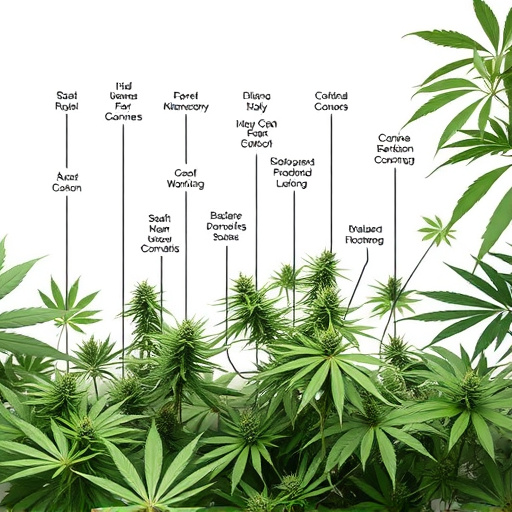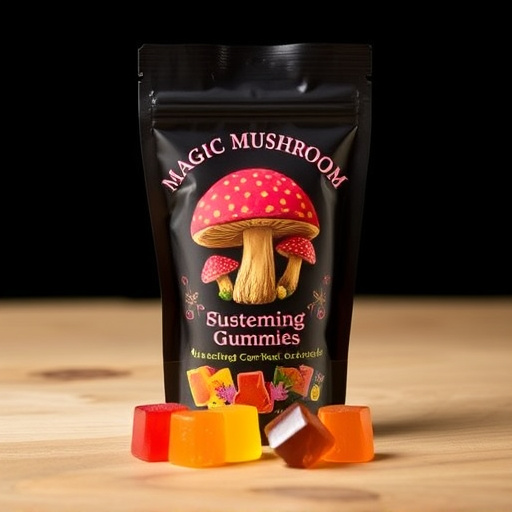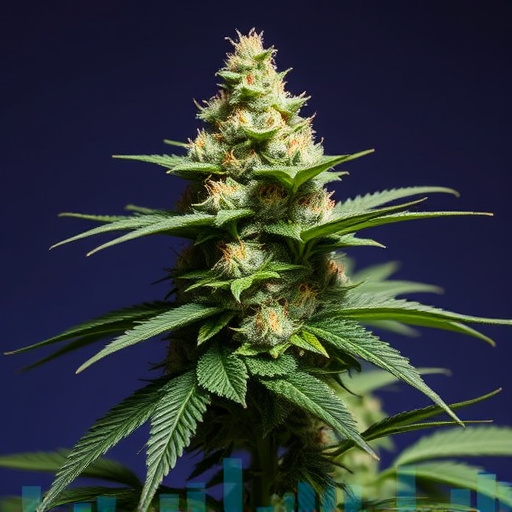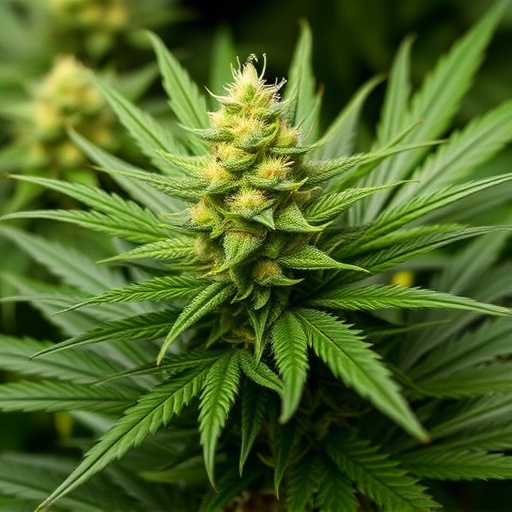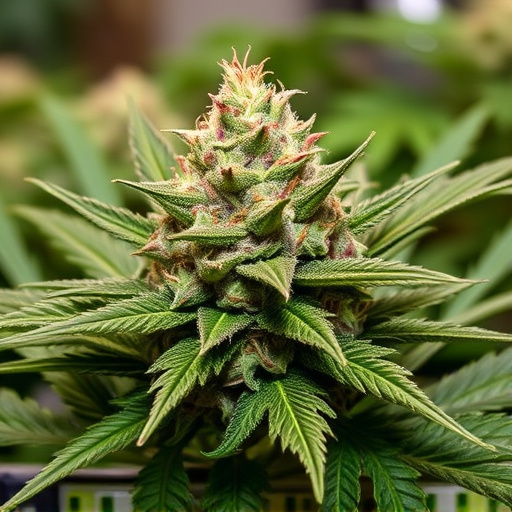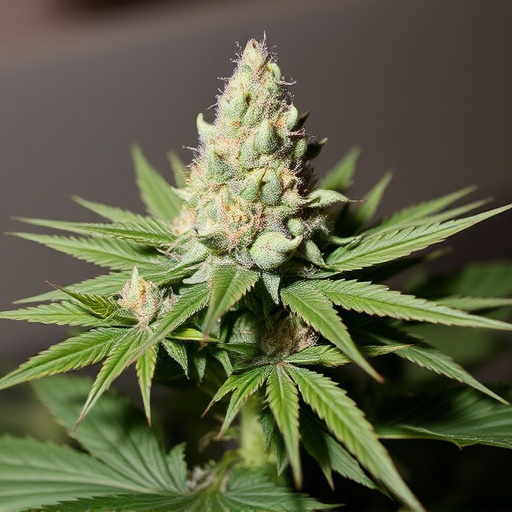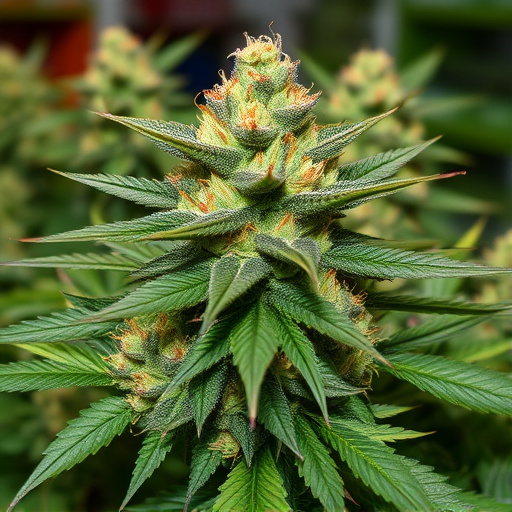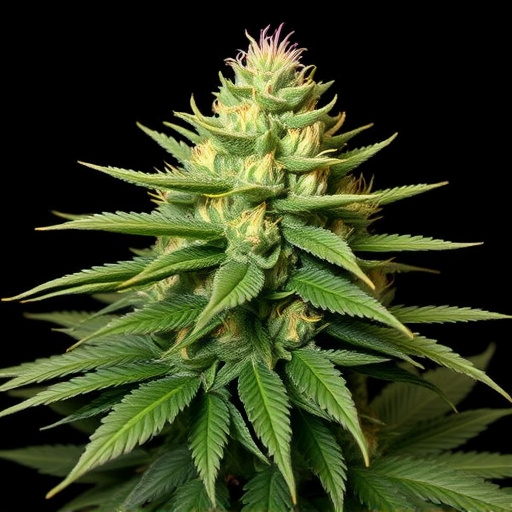Big bud strains of cannabis, rich in cannabinoids (like THC and CBD), terpenes, and flavonoids, offer therapeutic benefits beyond recreation. These compounds interact with the endocannabinoid system to potentially relieve stress and treat mental health conditions like anxiety and depression. Specific big bud strains show promise in alleviating symptoms of anxiety, depression, and PTSD through unique chemical profiles. However, using cannabis for mental health purposes requires caution due to potential risks like addiction and adverse reactions; starting with low doses under professional guidance is recommended.
Can cannabis flower be a game-changer in managing mental health? This question has sparked growing interest as more people seek natural alternatives for well-being. This article delves into the potential benefits of cannabis, focusing on how specific varieties like Big Bud strains might positively impact mental health. We explore the science behind their therapeutic properties, while also considering safe usage and potential risks, providing a comprehensive guide for informed decisions.
- Understanding Cannabis Flower and its Impact on Mental Health
- The Science Behind Big Bud Strains and Their Therapeutic Benefits
- Exploring Safe Usage and Potential Risks
Understanding Cannabis Flower and its Impact on Mental Health
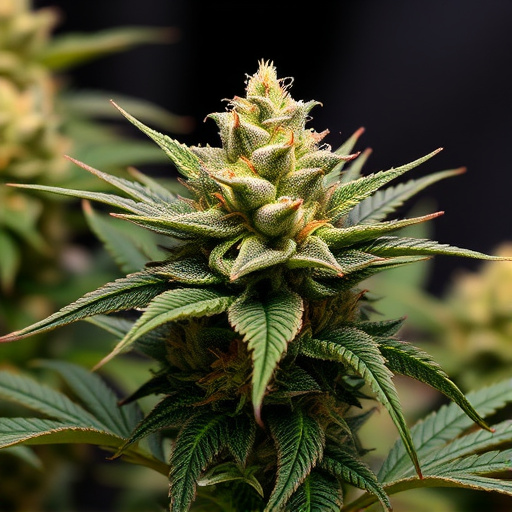
Cannabis flower, derived from the plant Cannabis sativa, has long been subject to debate regarding its effects on mental health. While it’s known for its psychoactive properties due to the presence of tetrahydrocannabinol (THC), recent studies suggest that cannabis, particularly certain big bud strains, offers more than just recreational benefits. The flower contains a diverse range of cannabinoids, terpenes, and flavonoids, each contributing to its therapeutic potential.
Big bud strains, known for their high cannabinoid content, may provide relief from various mental health conditions. For example, the stress-relieving effects of cannabis are attributed to its interaction with the endocannabinoid system (ECS), which plays a crucial role in regulating mood, memory, and anxiety. Additionally, specific terpenes found in these strains have been linked to anti-depressant and anxiolytic properties. Understanding the complex interplay between these chemical compounds is key to unlocking cannabis’s potential as a complementary treatment for mental health issues.
The Science Behind Big Bud Strains and Their Therapeutic Benefits
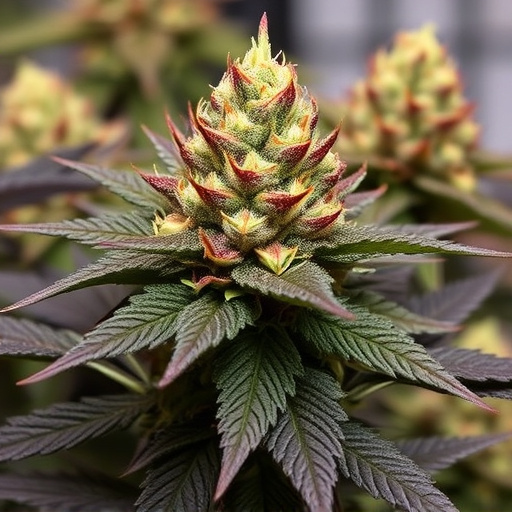
The science behind big bud strains reveals a complex interplay of terpenes, cannabinoids, and other chemical compounds that contribute to their therapeutic benefits. These potent varieties, characterized by dense, oversized buds, offer more than just aesthetic appeal; they are increasingly recognized for their potential to support mental health. Research suggests that specific big bud strains may alleviate symptoms associated with anxiety, depression, and post-traumatic stress disorder (PTSD). The key lies in the unique chemical profile of each strain—a symphony of terpenes like myrcene, limonene, and linalool, alongside major cannabinoids such as tetrahydrocannabinol (THC) and cannabidiol (CBD), which interact with our endocannabinoid system to modulate mood, reduce inflammation, and promote relaxation.
Scientists are uncovering the mechanisms through which big bud strains exert their therapeutic effects. Studies indicate that certain terpenes found in these strains have anti-anxiety and antidepressant properties, while cannabinoids like CBD exhibit neuroprotective and anti-inflammatory actions. The combination of these compounds allows for a multifaceted approach to mental health care, offering potential relief from a range of conditions without the same level of cognitive impairment often associated with traditional pharmaceuticals. As research continues to evolve, the role of big bud strains in enhancing mental well-being is poised to gain broader recognition and integration into therapeutic regimens.
Exploring Safe Usage and Potential Risks
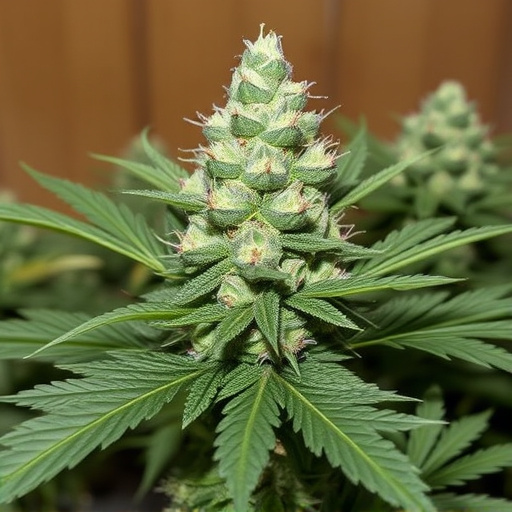
Using cannabis for mental health purposes requires a careful approach, especially when considering specific strains like Big Bud. While some users find relief from anxiety and stress with controlled consumption, it’s crucial to explore safe usage guidelines. Cannabis can have varying effects on different individuals, and consuming too much or using it improperly may lead to adverse reactions such as increased anxiety, paranoia, or even psychotic episodes in vulnerable people.
Potential risks also include addiction, particularly with regular, high-potency use. Some strains known for their high THC content, like Big Bud, can induce intense euphoria but may not be suitable for those struggling with mental health issues. It’s essential to start with low doses and choose strains with a balanced combination of THC and CBD, as the latter has shown promise in promoting mental well-being without the same level of cognitive impairment as THC. Always consult healthcare professionals before incorporating cannabis into your self-care routine.
Cannabis flower, with its diverse compounds and varieties, offers a promising path for managing mental health. While research on its therapeutic effects continues to evolve, specific strains like Big Bud have shown potential in alleviating stress, anxiety, and depression. However, safe usage demands awareness of individual reactions and adherence to responsible consumption practices. Further studies are needed to fully understand the scope of cannabis’ impact on mental well-being, but the current evidence highlights its promise as a complementary approach alongside traditional treatments.
